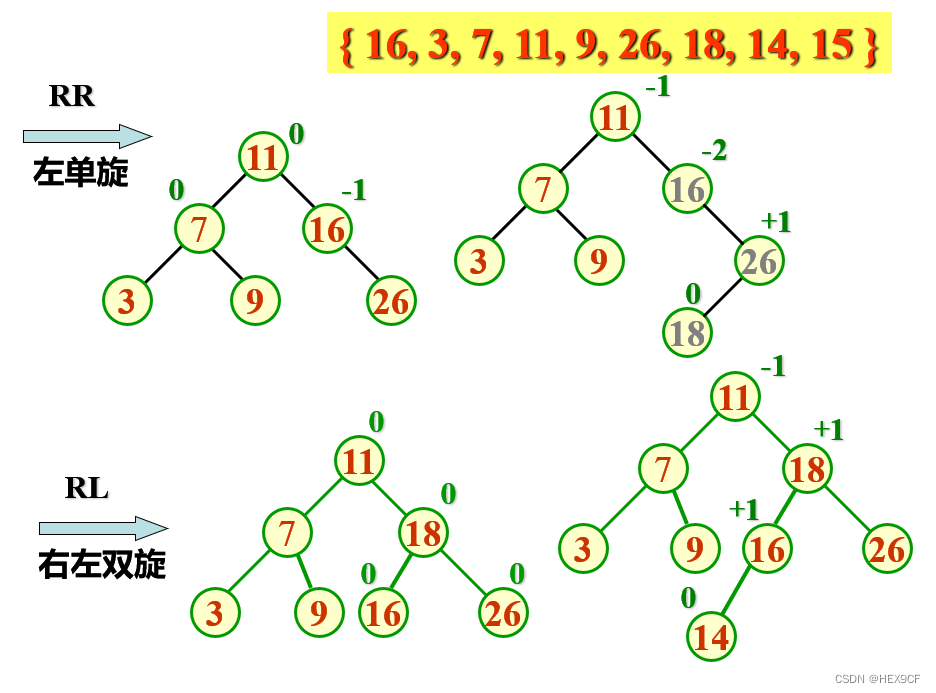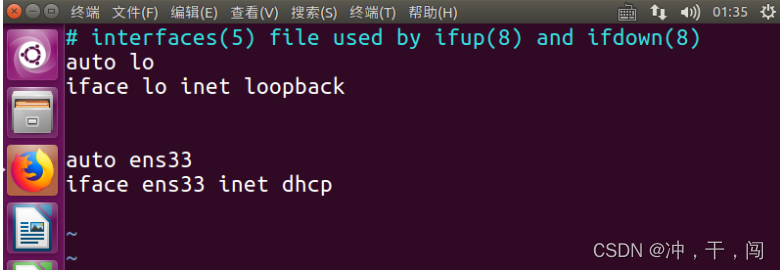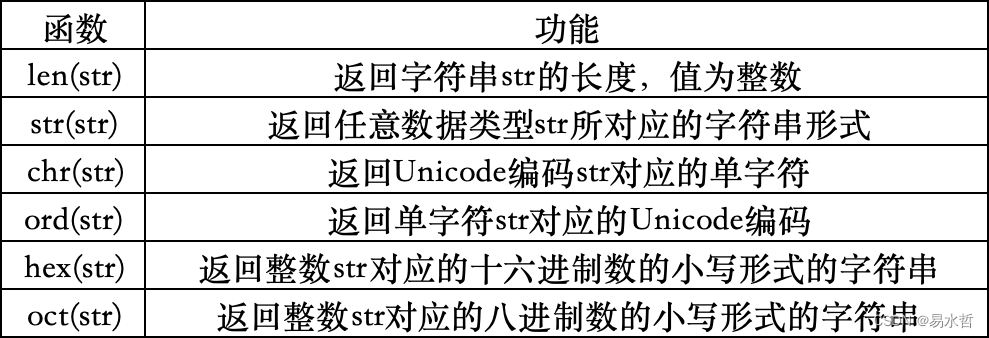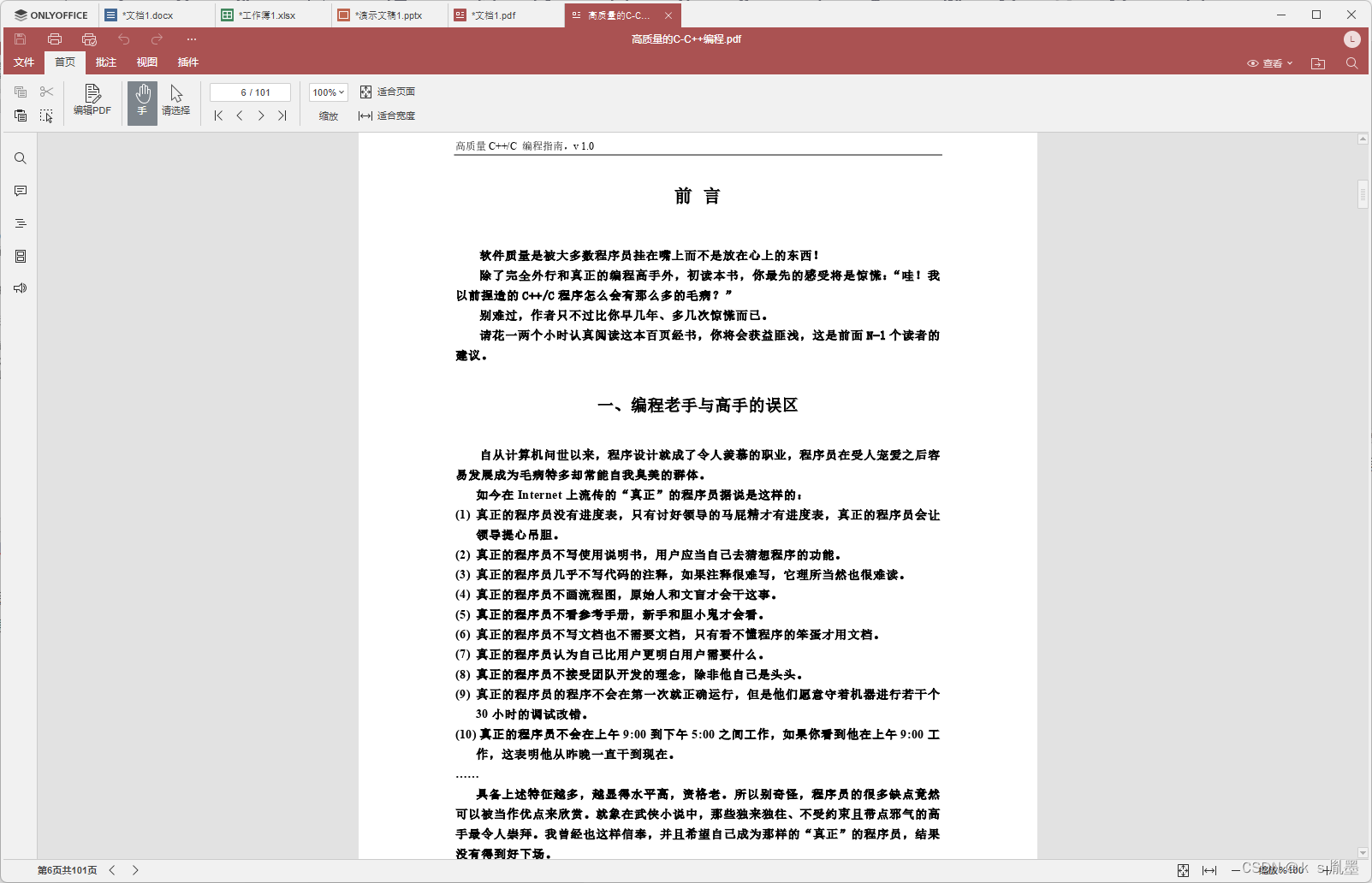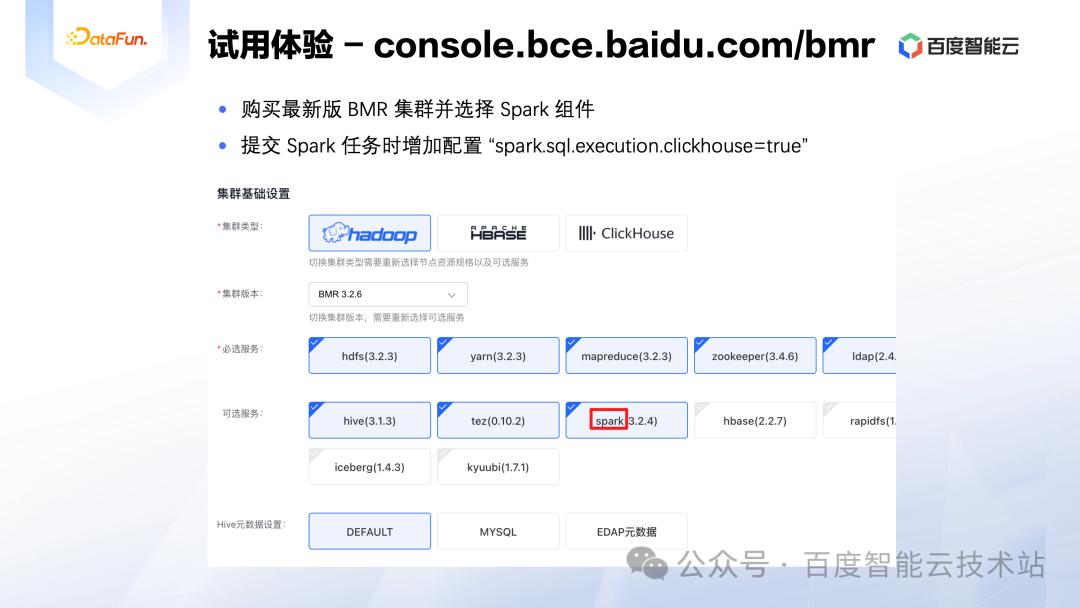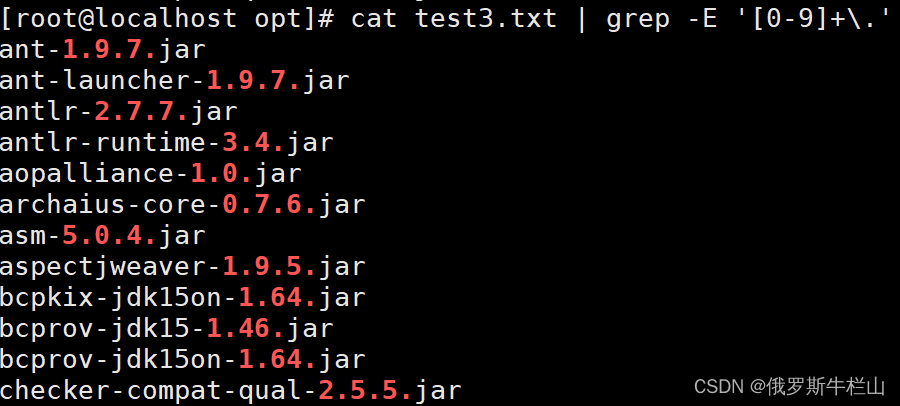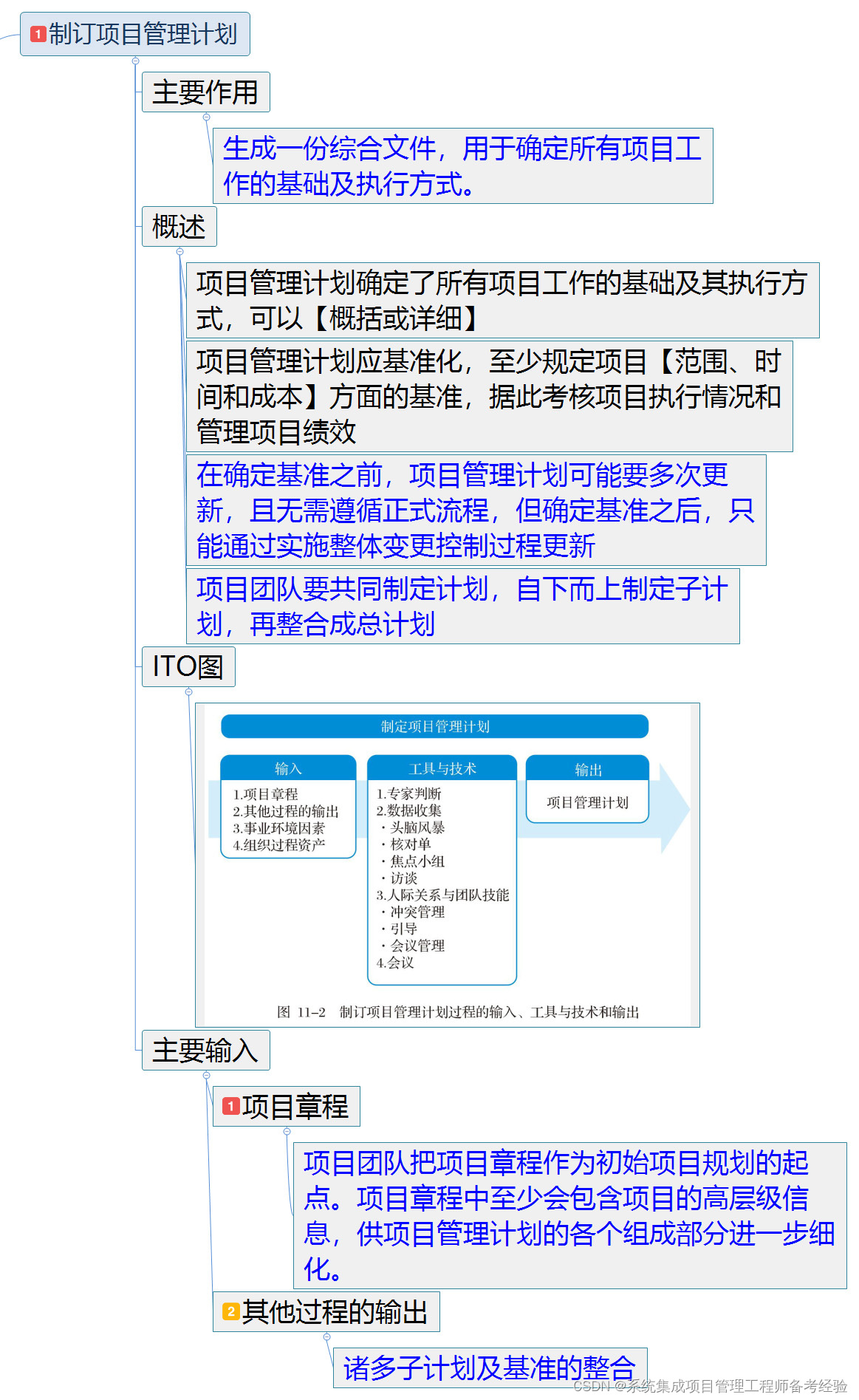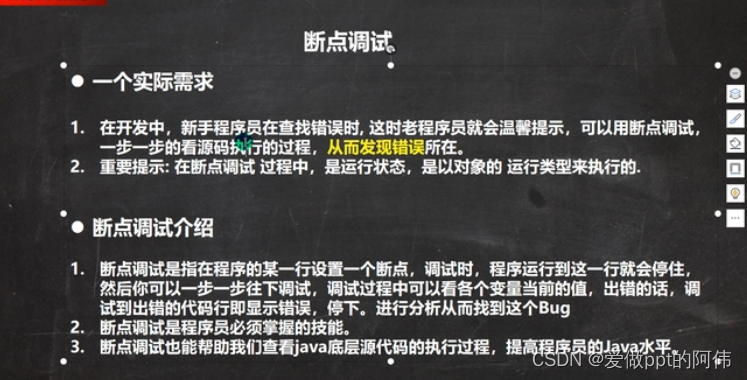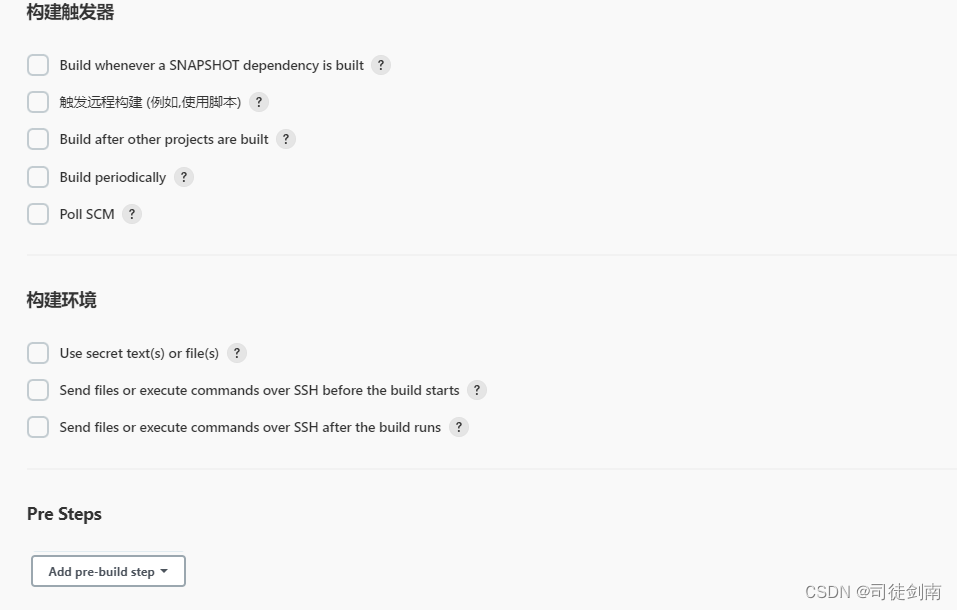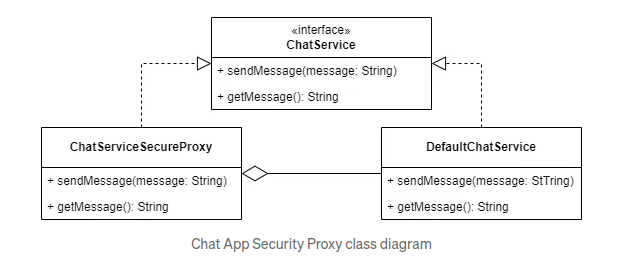qt的qftp.h和qftp.cpp
qftp.h
/****************************************************************************
**
** Copyright (C) 2012 Digia Plc and/or its subsidiary(-ies).
****************************************************************************/
#ifndef QFTP_H
#define QFTP_H
#include <QtCore/qstring.h>
#include <QtCore/qobject.h>
#include "qurlinfo.h"
QT_BEGIN_NAMESPACE
class QFtpPrivate;
class QFtp : public QObject
{
Q_OBJECT
public:
explicit QFtp(QObject *parent = 0);
virtual ~QFtp();
enum State {
Unconnected,
HostLookup,
Connecting,
Connected,
LoggedIn,
Closing
};
enum Error {
NoError,
UnknownError,
HostNotFound,
ConnectionRefused,
NotConnected
};
enum Command {
None,
SetTransferMode,
SetProxy,
ConnectToHost,
Login,
Close,
List,
Cd,
Get,
Put,
Remove,
Mkdir,
Rmdir,
Rename,
RawCommand
};
enum TransferMode {
Active,
Passive
};
enum TransferType {
Binary,
Ascii
};
int setProxy(const QString &host, quint16 port);
int connectToHost(const QString &host, quint16 port=21);
int login(const QString &user = QString(), const QString &password = QString());
int close();
int setTransferMode(TransferMode mode);
int list(const QString &dir = QString());
int cd(const QString &dir);
int get(const QString &file, QIODevice *dev=0, TransferType type = Binary);
int put(const QByteArray &data, const QString &file, TransferType type = Binary);
int put(QIODevice *dev, const QString &file, TransferType type = Binary);
int remove(const QString &file);
int mkdir(const QString &dir);
int rmdir(const QString &dir);
int rename(const QString &oldname, const QString &newname);
int rawCommand(const QString &command);
qint64 bytesAvailable() const;
qint64 read(char *data, qint64 maxlen);
QByteArray readAll();
int currentId() const;
QIODevice* currentDevice() const;
Command currentCommand() const;
bool hasPendingCommands() const;
void clearPendingCommands();
State state() const;
Error error() const;
QString errorString() const;
public Q_SLOTS:
void abort();
Q_SIGNALS:
void stateChanged(int);
void listInfo(const QUrlInfo&);
void readyRead();
void dataTransferProgress(qint64, qint64);
void rawCommandReply(int, const QString&);
void commandStarted(int);
void commandFinished(int, bool);
void done(bool);
private:
Q_DISABLE_COPY(QFtp)
QScopedPointer<QFtpPrivate> d;
Q_PRIVATE_SLOT(d, void _q_startNextCommand())
Q_PRIVATE_SLOT(d, void _q_piFinished(const QString&))
Q_PRIVATE_SLOT(d, void _q_piError(int, const QString&))
Q_PRIVATE_SLOT(d, void _q_piConnectState(int))
Q_PRIVATE_SLOT(d, void _q_piFtpReply(int, const QString&))
};
QT_END_NAMESPACE
#endif // QFTP_H
qftp.cpp
/****************************************************************************
qftp.cpp
****************************************************************************/
//#define QFTPPI_DEBUG
//#define QFTPDTP_DEBUG
#include "qftp.h"
#include "qabstractsocket.h"
#ifndef QT_NO_FTP
#include "qcoreapplication.h"
#include "qtcpsocket.h"
#include "qurlinfo.h"
#include "qstringlist.h"
#include "qregexp.h"
#include "qtimer.h"
#include "qfileinfo.h"
#include "qhash.h"
#include "qtcpserver.h"
#include "qlocale.h"
QT_BEGIN_NAMESPACE
class QFtpPI;
/*
The QFtpDTP (DTP = Data Transfer Process) controls all client side
data transfer between the client and server.
*/
class QFtpDTP : public QObject
{
Q_OBJECT
public:
enum ConnectState {
CsHostFound,
CsConnected,
CsClosed,
CsHostNotFound,
CsConnectionRefused
};
QFtpDTP(QFtpPI *p, QObject *parent = 0);
void setData(QByteArray *);
void setDevice(QIODevice *);
void writeData();
void setBytesTotal(qint64 bytes);
bool hasError() const;
QString errorMessage() const;
void clearError();
void connectToHost(const QString & host, quint16 port);
int setupListener(const QHostAddress &address);
void waitForConnection();
QTcpSocket::SocketState state() const;
qint64 bytesAvailable() const;
qint64 read(char *data, qint64 maxlen);
QByteArray readAll();
void abortConnection();
static bool parseDir(const QByteArray &buffer, const QString &userName, QUrlInfo *info);
signals:
void listInfo(const QUrlInfo&);
void readyRead();
void dataTransferProgress(qint64, qint64);
void connectState(int);
private slots:
void socketConnected();
void socketReadyRead();
void socketError(QAbstractSocket::SocketError);
void socketConnectionClosed();
void socketBytesWritten(qint64);
void setupSocket();
void dataReadyRead();
private:
void clearData();
QTcpSocket *socket;
QTcpServer listener;
QFtpPI *pi;
QString err;
qint64 bytesDone;
qint64 bytesTotal;
bool callWriteData;
// If is_ba is true, ba is used; ba is never 0.
// Otherwise dev is used; dev can be 0 or not.
union {
QByteArray *ba;
QIODevice *dev;
} data;
bool is_ba;
QByteArray bytesFromSocket;
};
/**********************************************************************
*
* QFtpPI - Protocol Interpreter
*
*********************************************************************/
class QFtpPI : public QObject
{
Q_OBJECT
public:
QFtpPI(QObject *parent = 0);
void connectToHost(const QString &host, quint16 port);
bool sendCommands(const QStringList &cmds);
bool sendCommand(const QString &cmd)
{ return sendCommands(QStringList(cmd)); }
void clearPendingCommands();
void abort();
QString currentCommand() const
{ return currentCmd; }
bool rawCommand;
bool transferConnectionExtended;
QFtpDTP dtp; // the PI has a DTP which is not the design of RFC 959, but it
// makes the design simpler this way
signals:
void connectState(int);
void finished(const QString&);
void error(int, const QString&);
void rawFtpReply(int, const QString&);
private slots:
void hostFound();
void connected();
void connectionClosed();
void delayedCloseFinished();
void readyRead();
void error(QAbstractSocket::SocketError);
void dtpConnectState(int);
private:
// the states are modelled after the generalized state diagram of RFC 959,
// page 58
enum State {
Begin,
Idle,
Waiting,
Success,
Failure
};
enum AbortState {
None,
AbortStarted,
WaitForAbortToFinish
};
bool processReply();
bool startNextCmd();
QTcpSocket commandSocket;
QString replyText;
char replyCode[3];
State state;
AbortState abortState;
QStringList pendingCommands;
QString currentCmd;
bool waitForDtpToConnect;
bool waitForDtpToClose;
QByteArray bytesFromSocket;
friend class QFtpDTP;
};
/**********************************************************************
*
* QFtpCommand implemenatation
*
*********************************************************************/
class QFtpCommand
{
public:
QFtpCommand(QFtp::Command cmd, QStringList raw, const QByteArray &ba);
QFtpCommand(QFtp::Command cmd, QStringList raw, QIODevice *dev = 0);
~QFtpCommand();
int id;
QFtp::Command command;
QStringList rawCmds;
// If is_ba is true, ba is used; ba is never 0.
// Otherwise dev is used; dev can be 0 or not.
union {
QByteArray *ba;
QIODevice *dev;
} data;
bool is_ba;
static QBasicAtomicInt idCounter;
};
QBasicAtomicInt QFtpCommand::idCounter = Q_BASIC_ATOMIC_INITIALIZER(1);
QFtpCommand::QFtpCommand(QFtp::Command cmd, QStringList raw, const QByteArray &ba)
: command(cmd), rawCmds(raw), is_ba(true)
{
id = idCounter.fetchAndAddRelaxed(1);
data.ba = new QByteArray(ba);
}
QFtpCommand::QFtpCommand(QFtp::Command cmd, QStringList raw, QIODevice *dev)
: command(cmd), rawCmds(raw), is_ba(false)
{
id = idCounter.fetchAndAddRelaxed(1);
data.dev = dev;
}
QFtpCommand::~QFtpCommand()
{
if (is_ba)
delete data.ba;
}
/**********************************************************************
*
* QFtpDTP implemenatation
*
*********************************************************************/
QFtpDTP::QFtpDTP(QFtpPI *p, QObject *parent) :
QObject(parent),
socket(0),
listener(this),
pi(p),
callWriteData(false)
{
clearData();
listener.setObjectName(QLatin1String("QFtpDTP active state server"));
connect(&listener, SIGNAL(newConnection()), SLOT(setupSocket()));
}
void QFtpDTP::setData(QByteArray *ba)
{
is_ba = true;
data.ba = ba;
}
void QFtpDTP::setDevice(QIODevice *dev)
{
is_ba = false;
data.dev = dev;
}
void QFtpDTP::setBytesTotal(qint64 bytes)
{
bytesTotal = bytes;
bytesDone = 0;
emit dataTransferProgress(bytesDone, bytesTotal);
}
void QFtpDTP::connectToHost(const QString & host, quint16 port)
{
bytesFromSocket.clear();
if (socket) {
delete socket;
socket = 0;
}
socket = new QTcpSocket(this);
#ifndef QT_NO_BEARERMANAGEMENT
//copy network session down to the socket
socket->setProperty("_q_networksession", property("_q_networksession"));
#endif
socket->setObjectName(QLatin1String("QFtpDTP Passive state socket"));
connect(socket, SIGNAL(connected()), SLOT(socketConnected()));
connect(socket, SIGNAL(readyRead()), SLOT(socketReadyRead()));
connect(socket, SIGNAL(error(QAbstractSocket::SocketError)), SLOT(socketError(QAbstractSocket::SocketError)));
connect(socket, SIGNAL(disconnected()), SLOT(socketConnectionClosed()));
connect(socket, SIGNAL(bytesWritten(qint64)), SLOT(socketBytesWritten(qint64)));
socket->connectToHost(host, port);
}
int QFtpDTP::setupListener(const QHostAddress &address)
{
#ifndef QT_NO_BEARERMANAGEMENT
//copy network session down to the socket
listener.setProperty("_q_networksession", property("_q_networksession"));
#endif
if (!listener.isListening() && !listener.listen(address, 0))
return -1;
return listener.serverPort();
}
void QFtpDTP::waitForConnection()
{
// This function is only interesting in Active transfer mode; it works
// around a limitation in QFtp's design by blocking, waiting for an
// incoming connection. For the default Passive mode, it does nothing.
if (listener.isListening())
listener.waitForNewConnection();
}
QTcpSocket::SocketState QFtpDTP::state() const
{
return socket ? socket->state() : QTcpSocket::UnconnectedState;
}
qint64 QFtpDTP::bytesAvailable() const
{
if (!socket || socket->state() != QTcpSocket::ConnectedState)
return (qint64) bytesFromSocket.size();
return socket->bytesAvailable();
}
qint64 QFtpDTP::read(char *data, qint64 maxlen)
{
qint64 read;
if (socket && socket->state() == QTcpSocket::ConnectedState) {
read = socket->read(data, maxlen);
} else {
read = qMin(maxlen, qint64(bytesFromSocket.size()));
memcpy(data, bytesFromSocket.data(), read);
bytesFromSocket.remove(0, read);
}
bytesDone += read;
return read;
}
QByteArray QFtpDTP::readAll()
{
QByteArray tmp;
if (socket && socket->state() == QTcpSocket::ConnectedState) {
tmp = socket->readAll();
bytesDone += tmp.size();
} else {
tmp = bytesFromSocket;
bytesFromSocket.clear();
}
return tmp;
}
void QFtpDTP::writeData()
{
if (!socket)
return;
if (is_ba) {
#if defined(QFTPDTP_DEBUG)
qDebug("QFtpDTP::writeData: write %d bytes", data.ba->size());
#endif
if (data.ba->size() == 0)
emit dataTransferProgress(0, bytesTotal);
else
socket->write(data.ba->data(), data.ba->size());
socket->close();
clearData();
} else if (data.dev) {
callWriteData = false;
const qint64 blockSize = 16*1024;
char buf[16*1024];
qint64 read = data.dev->read(buf, blockSize);
#if defined(QFTPDTP_DEBUG)
qDebug("QFtpDTP::writeData: write() of size %lli bytes", read);
#endif
if (read > 0) {
socket->write(buf, read);
} else if (read == -1 || (!data.dev->isSequential() && data.dev->atEnd())) {
// error or EOF
if (bytesDone == 0 && socket->bytesToWrite() == 0)
emit dataTransferProgress(0, bytesTotal);
socket->close();
clearData();
}
// do we continue uploading?
callWriteData = data.dev != 0;
}
}
void QFtpDTP::dataReadyRead()
{
writeData();
}
inline bool QFtpDTP::hasError() const
{
return !err.isNull();
}
inline QString QFtpDTP::errorMessage() const
{
return err;
}
inline void QFtpDTP::clearError()
{
err.clear();
}
void QFtpDTP::abortConnection()
{
#if defined(QFTPDTP_DEBUG)
qDebug("QFtpDTP::abortConnection, bytesAvailable == %lli",
socket ? socket->bytesAvailable() : (qint64) 0);
#endif
callWriteData = false;
clearData();
if (socket)
socket->abort();
}
static void _q_fixupDateTime(QDateTime *dateTime)
{
// Adjust for future tolerance.
const int futureTolerance = 86400;
if (dateTime->secsTo(QDateTime::currentDateTime()) < -futureTolerance) {
QDate d = dateTime->date();
d.setDate(d.year() - 1, d.month(), d.day());
dateTime->setDate(d);
}
}
static void _q_parseUnixDir(const QStringList &tokens, const QString &userName, QUrlInfo *info)
{
// Unix style, 7 + 1 entries
// -rw-r--r-- 1 ftp ftp 17358091 Aug 10 2004 qt-x11-free-3.3.3.tar.gz
// drwxr-xr-x 3 ftp ftp 4096 Apr 14 2000 compiled-examples
// lrwxrwxrwx 1 ftp ftp 9 Oct 29 2005 qtscape -> qtmozilla
if (tokens.size() != 8)
return;
char first = tokens.at(1).at(0).toLatin1();
if (first == 'd') {
info->setDir(true);
info->setFile(false);
info->setSymLink(false);
} else if (first == '-') {
info->setDir(false);
info->setFile(true);
info->setSymLink(false);
} else if (first == 'l') {
info->setDir(true);
info->setFile(false);
info->setSymLink(true);
}
// Resolve filename
QString name = tokens.at(7);
if (info->isSymLink()) {
int linkPos = name.indexOf(QLatin1String(" ->"));
if (linkPos != -1)
name.resize(linkPos);
}
info->setName(name);
// Resolve owner & group
info->setOwner(tokens.at(3));
info->setGroup(tokens.at(4));
// Resolve size
info->setSize(tokens.at(5).toLongLong());
QStringList formats;
formats << QLatin1String("MMM dd yyyy") << QLatin1String("MMM dd hh:mm") << QLatin1String("MMM d yyyy")
<< QLatin1String("MMM d hh:mm") << QLatin1String("MMM d yyyy") << QLatin1String("MMM dd yyyy");
QString dateString = tokens.at(6);
dateString[0] = dateString[0].toUpper();
// Resolve the modification date by parsing all possible formats
QDateTime dateTime;
int n = 0;
#ifndef QT_NO_DATESTRING
do {
dateTime = QLocale::c().toDateTime(dateString, formats.at(n++));
} while (n < formats.size() && (!dateTime.isValid()));
#endif
if (n == 2 || n == 4) {
// Guess the year.
dateTime.setDate(QDate(QDate::currentDate().year(),
dateTime.date().month(),
dateTime.date().day()));
_q_fixupDateTime(&dateTime);
}
if (dateTime.isValid())
info->setLastModified(dateTime);
// Resolve permissions
int permissions = 0;
QString p = tokens.at(2);
permissions |= (p[0] == QLatin1Char('r') ? QUrlInfo::ReadOwner : 0);
permissions |= (p[1] == QLatin1Char('w') ? QUrlInfo::WriteOwner : 0);
permissions |= (p[2] == QLatin1Char('x') ? QUrlInfo::ExeOwner : 0);
permissions |= (p[3] == QLatin1Char('r') ? QUrlInfo::ReadGroup : 0);
permissions |= (p[4] == QLatin1Char('w') ? QUrlInfo::WriteGroup : 0);
permissions |= (p[5] == QLatin1Char('x') ? QUrlInfo::ExeGroup : 0);
permissions |= (p[6] == QLatin1Char('r') ? QUrlInfo::ReadOther : 0);
permissions |= (p[7] == QLatin1Char('w') ? QUrlInfo::WriteOther : 0);
permissions |= (p[8] == QLatin1Char('x') ? QUrlInfo::ExeOther : 0);
info->setPermissions(permissions);
bool isOwner = info->owner() == userName;
info->setReadable((permissions & QUrlInfo::ReadOther) || ((permissions & QUrlInfo::ReadOwner) && isOwner));
info->setWritable((permissions & QUrlInfo::WriteOther) || ((permissions & QUrlInfo::WriteOwner) && isOwner));
}
static void _q_parseDosDir(const QStringList &tokens, const QString &userName, QUrlInfo *info)
{
// DOS style, 3 + 1 entries
// 01-16-02 11:14AM <DIR> epsgroup
// 06-05-03 03:19PM 1973 readme.txt
if (tokens.size() != 4)
return;
Q_UNUSED(userName);
QString name = tokens.at(3);
info->setName(name);
info->setSymLink(name.toLower().endsWith(QLatin1String(".lnk")));
if (tokens.at(2) == QLatin1String("<DIR>")) {
info->setFile(false);
info->setDir(true);
} else {
info->setFile(true);
info->setDir(false);
info->setSize(tokens.at(2).toLongLong());
}
// Note: We cannot use QFileInfo; permissions are for the server-side
// machine, and QFileInfo's behavior depends on the local platform.
int permissions = QUrlInfo::ReadOwner | QUrlInfo::WriteOwner
| QUrlInfo::ReadGroup | QUrlInfo::WriteGroup
| QUrlInfo::ReadOther | QUrlInfo::WriteOther;
QString ext;
int extIndex = name.lastIndexOf(QLatin1Char('.'));
if (extIndex != -1)
ext = name.mid(extIndex + 1);
if (ext == QLatin1String("exe") || ext == QLatin1String("bat") || ext == QLatin1String("com"))
permissions |= QUrlInfo::ExeOwner | QUrlInfo::ExeGroup | QUrlInfo::ExeOther;
info->setPermissions(permissions);
info->setReadable(true);
info->setWritable(info->isFile());
QDateTime dateTime;
#ifndef QT_NO_DATESTRING
dateTime = QLocale::c().toDateTime(tokens.at(1), QLatin1String("MM-dd-yy hh:mmAP"));
if (dateTime.date().year() < 1971) {
dateTime.setDate(QDate(dateTime.date().year() + 100,
dateTime.date().month(),
dateTime.date().day()));
}
#endif
info->setLastModified(dateTime);
}
bool QFtpDTP::parseDir(const QByteArray &buffer, const QString &userName, QUrlInfo *info)
{
if (buffer.isEmpty())
return false;
QString bufferStr = QString::fromLatin1(buffer).trimmed();
// Unix style FTP servers
QRegExp unixPattern(QLatin1String("^([\\-dl])([a-zA-Z\\-]{9,9})\\s+\\d+\\s+(\\S*)\\s+"
"(\\S*)\\s+(\\d+)\\s+(\\S+\\s+\\S+\\s+\\S+)\\s+(\\S.*)"));
if (unixPattern.indexIn(bufferStr) == 0) {
_q_parseUnixDir(unixPattern.capturedTexts(), userName, info);
return true;
}
// DOS style FTP servers
QRegExp dosPattern(QLatin1String("^(\\d\\d-\\d\\d-\\d\\d\\d?\\d?\\ \\ \\d\\d:\\d\\d[AP]M)\\s+"
"(<DIR>|\\d+)\\s+(\\S.*)$"));
if (dosPattern.indexIn(bufferStr) == 0) {
_q_parseDosDir(dosPattern.capturedTexts(), userName, info);
return true;
}
// Unsupported
return false;
}
void QFtpDTP::socketConnected()
{
bytesDone = 0;
#if defined(QFTPDTP_DEBUG)
qDebug("QFtpDTP::connectState(CsConnected)");
#endif
emit connectState(QFtpDTP::CsConnected);
}
void QFtpDTP::socketReadyRead()
{
if (!socket)
return;
if (pi->currentCommand().isEmpty()) {
socket->close();
#if defined(QFTPDTP_DEBUG)
qDebug("QFtpDTP::connectState(CsClosed)");
#endif
emit connectState(QFtpDTP::CsClosed);
return;
}
if (pi->abortState == QFtpPI::AbortStarted) {
// discard data
socket->readAll();
return;
}
if (pi->currentCommand().startsWith(QLatin1String("LIST"))) {
while (socket->canReadLine()) {
QUrlInfo i;
QByteArray line = socket->readLine();
#if defined(QFTPDTP_DEBUG)
qDebug("QFtpDTP read (list): '%s'", line.constData());
#endif
if (parseDir(line, QLatin1String(""), &i)) {
emit listInfo(i);
} else {
// some FTP servers don't return a 550 if the file or directory
// does not exist, but rather write a text to the data socket
// -- try to catch these cases
if (line.endsWith("No such file or directory\r\n"))
err = QString::fromLatin1(line);
}
}
} else {
if (!is_ba && data.dev) {
do {
QByteArray ba;
ba.resize(socket->bytesAvailable());
qint64 bytesRead = socket->read(ba.data(), ba.size());
if (bytesRead < 0) {
// a read following a readyRead() signal will
// never fail.
return;
}
ba.resize(bytesRead);
bytesDone += bytesRead;
#if defined(QFTPDTP_DEBUG)
qDebug("QFtpDTP read: %lli bytes (total %lli bytes)", bytesRead, bytesDone);
#endif
if (data.dev) // make sure it wasn't deleted in the slot
data.dev->write(ba);
emit dataTransferProgress(bytesDone, bytesTotal);
// Need to loop; dataTransferProgress is often connected to
// slots that update the GUI (e.g., progress bar values), and
// if events are processed, more data may have arrived.
} while (socket->bytesAvailable());
} else {
#if defined(QFTPDTP_DEBUG)
qDebug("QFtpDTP readyRead: %lli bytes available (total %lli bytes read)",
bytesAvailable(), bytesDone);
#endif
emit dataTransferProgress(bytesDone+socket->bytesAvailable(), bytesTotal);
emit readyRead();
}
}
}
void QFtpDTP::socketError(QAbstractSocket::SocketError e)
{
if (e == QTcpSocket::HostNotFoundError) {
#if defined(QFTPDTP_DEBUG)
qDebug("QFtpDTP::connectState(CsHostNotFound)");
#endif
emit connectState(QFtpDTP::CsHostNotFound);
} else if (e == QTcpSocket::ConnectionRefusedError) {
#if defined(QFTPDTP_DEBUG)
qDebug("QFtpDTP::connectState(CsConnectionRefused)");
#endif
emit connectState(QFtpDTP::CsConnectionRefused);
}
}
void QFtpDTP::socketConnectionClosed()
{
if (!is_ba && data.dev) {
clearData();
}
bytesFromSocket = socket->readAll();
#if defined(QFTPDTP_DEBUG)
qDebug("QFtpDTP::connectState(CsClosed)");
#endif
emit connectState(QFtpDTP::CsClosed);
}
void QFtpDTP::socketBytesWritten(qint64 bytes)
{
bytesDone += bytes;
#if defined(QFTPDTP_DEBUG)
qDebug("QFtpDTP::bytesWritten(%lli)", bytesDone);
#endif
emit dataTransferProgress(bytesDone, bytesTotal);
if (callWriteData)
writeData();
}
void QFtpDTP::setupSocket()
{
socket = listener.nextPendingConnection();
socket->setObjectName(QLatin1String("QFtpDTP Active state socket"));
connect(socket, SIGNAL(connected()), SLOT(socketConnected()));
connect(socket, SIGNAL(readyRead()), SLOT(socketReadyRead()));
connect(socket, SIGNAL(error(QAbstractSocket::SocketError)), SLOT(socketError(QAbstractSocket::SocketError)));
connect(socket, SIGNAL(disconnected()), SLOT(socketConnectionClosed()));
connect(socket, SIGNAL(bytesWritten(qint64)), SLOT(socketBytesWritten(qint64)));
listener.close();
}
void QFtpDTP::clearData()
{
is_ba = false;
data.dev = 0;
}
/**********************************************************************
*
* QFtpPI implemenatation
*
*********************************************************************/
QFtpPI::QFtpPI(QObject *parent) :
QObject(parent),
rawCommand(false),
transferConnectionExtended(true),
dtp(this),
commandSocket(0),
state(Begin), abortState(None),
currentCmd(QString()),
waitForDtpToConnect(false),
waitForDtpToClose(false)
{
commandSocket.setObjectName(QLatin1String("QFtpPI_socket"));
connect(&commandSocket, SIGNAL(hostFound()),
SLOT(hostFound()));
connect(&commandSocket, SIGNAL(connected()),
SLOT(connected()));
connect(&commandSocket, SIGNAL(disconnected()),
SLOT(connectionClosed()));
connect(&commandSocket, SIGNAL(readyRead()),
SLOT(readyRead()));
connect(&commandSocket, SIGNAL(error(QAbstractSocket::SocketError)),
SLOT(error(QAbstractSocket::SocketError)));
connect(&dtp, SIGNAL(connectState(int)),
SLOT(dtpConnectState(int)));
}
void QFtpPI::connectToHost(const QString &host, quint16 port)
{
emit connectState(QFtp::HostLookup);
#ifndef QT_NO_BEARERMANAGEMENT
//copy network session down to the socket & DTP
commandSocket.setProperty("_q_networksession", property("_q_networksession"));
dtp.setProperty("_q_networksession", property("_q_networksession"));
#endif
commandSocket.connectToHost(host, port);
}
/*
Sends the sequence of commands \a cmds to the FTP server. When the commands
are all done the finished() signal is emitted. When an error occurs, the
error() signal is emitted.
If there are pending commands in the queue this functions returns false and
the \a cmds are not added to the queue; otherwise it returns true.
*/
bool QFtpPI::sendCommands(const QStringList &cmds)
{
if (!pendingCommands.isEmpty())
return false;
if (commandSocket.state() != QTcpSocket::ConnectedState || state!=Idle) {
emit error(QFtp::NotConnected, QFtp::tr("Not connected"));
return true; // there are no pending commands
}
pendingCommands = cmds;
startNextCmd();
return true;
}
void QFtpPI::clearPendingCommands()
{
pendingCommands.clear();
dtp.abortConnection();
currentCmd.clear();
state = Idle;
}
void QFtpPI::abort()
{
pendingCommands.clear();
if (abortState != None)
// ABOR already sent
return;
abortState = AbortStarted;
#if defined(QFTPPI_DEBUG)
qDebug("QFtpPI send: ABOR");
#endif
commandSocket.write("ABOR\r\n", 6);
if (currentCmd.startsWith(QLatin1String("STOR ")))
dtp.abortConnection();
}
void QFtpPI::hostFound()
{
emit connectState(QFtp::Connecting);
}
void QFtpPI::connected()
{
state = Begin;
#if defined(QFTPPI_DEBUG)
// qDebug("QFtpPI state: %d [connected()]", state);
#endif
// try to improve performance by setting TCP_NODELAY
commandSocket.setSocketOption(QAbstractSocket::LowDelayOption, 1);
emit connectState(QFtp::Connected);
}
void QFtpPI::connectionClosed()
{
commandSocket.close();
emit connectState(QFtp::Unconnected);
}
void QFtpPI::delayedCloseFinished()
{
emit connectState(QFtp::Unconnected);
}
void QFtpPI::error(QAbstractSocket::SocketError e)
{
if (e == QTcpSocket::HostNotFoundError) {
emit connectState(QFtp::Unconnected);
emit error(QFtp::HostNotFound,
QFtp::tr("Host %1 not found").arg(commandSocket.peerName()));
} else if (e == QTcpSocket::ConnectionRefusedError) {
emit connectState(QFtp::Unconnected);
emit error(QFtp::ConnectionRefused,
QFtp::tr("Connection refused to host %1").arg(commandSocket.peerName()));
} else if (e == QTcpSocket::SocketTimeoutError) {
emit connectState(QFtp::Unconnected);
emit error(QFtp::ConnectionRefused,
QFtp::tr("Connection timed out to host %1").arg(commandSocket.peerName()));
}
}
void QFtpPI::readyRead()
{
if (waitForDtpToClose)
return;
while (commandSocket.canReadLine()) {
// read line with respect to line continuation
QString line = QString::fromLatin1(commandSocket.readLine());
if (replyText.isEmpty()) {
if (line.length() < 3) {
// protocol error
return;
}
const int lowerLimit[3] = {1,0,0};
const int upperLimit[3] = {5,5,9};
for (int i=0; i<3; i++) {
replyCode[i] = line[i].digitValue();
if (replyCode[i]<lowerLimit[i] || replyCode[i]>upperLimit[i]) {
// protocol error
return;
}
}
}
QString endOfMultiLine;
endOfMultiLine[0] = '0' + replyCode[0];
endOfMultiLine[1] = '0' + replyCode[1];
endOfMultiLine[2] = '0' + replyCode[2];
endOfMultiLine[3] = QLatin1Char(' ');
QString lineCont(endOfMultiLine);
lineCont[3] = QLatin1Char('-');
QString lineLeft4 = line.left(4);
while (lineLeft4 != endOfMultiLine) {
if (lineLeft4 == lineCont)
replyText += line.mid(4); // strip 'xyz-'
else
replyText += line;
if (!commandSocket.canReadLine())
return;
line = QString::fromLatin1(commandSocket.readLine());
lineLeft4 = line.left(4);
}
replyText += line.mid(4); // strip reply code 'xyz '
if (replyText.endsWith(QLatin1String("\r\n")))
replyText.chop(2);
if (processReply())
replyText = QLatin1String("");
}
}
/*
Process a reply from the FTP server.
Returns true if the reply was processed or false if the reply has to be
processed at a later point.
*/
bool QFtpPI::processReply()
{
#if defined(QFTPPI_DEBUG)
// qDebug("QFtpPI state: %d [processReply() begin]", state);
if (replyText.length() < 400)
qDebug("QFtpPI recv: %d %s", 100*replyCode[0]+10*replyCode[1]+replyCode[2], replyText.toLatin1().constData());
else
qDebug("QFtpPI recv: %d (text skipped)", 100*replyCode[0]+10*replyCode[1]+replyCode[2]);
#endif
int replyCodeInt = 100*replyCode[0] + 10*replyCode[1] + replyCode[2];
// process 226 replies ("Closing Data Connection") only when the data
// connection is really closed to avoid short reads of the DTP
if (replyCodeInt == 226 || (replyCodeInt == 250 && currentCmd.startsWith(QLatin1String("RETR")))) {
if (dtp.state() != QTcpSocket::UnconnectedState) {
waitForDtpToClose = true;
return false;
}
}
switch (abortState) {
case AbortStarted:
abortState = WaitForAbortToFinish;
break;
case WaitForAbortToFinish:
abortState = None;
return true;
default:
break;
}
// get new state
static const State table[5] = {
/* 1yz 2yz 3yz 4yz 5yz */
Waiting, Success, Idle, Failure, Failure
};
switch (state) {
case Begin:
if (replyCode[0] == 1) {
return true;
} else if (replyCode[0] == 2) {
state = Idle;
emit finished(QFtp::tr("Connected to host %1").arg(commandSocket.peerName()));
break;
}
// reply codes not starting with 1 or 2 are not handled.
return true;
case Waiting:
if (static_cast<signed char>(replyCode[0]) < 0 || replyCode[0] > 5)
state = Failure;
else
#if defined(Q_OS_IRIX) && defined(Q_CC_GNU)
{
// work around a crash on 64 bit gcc IRIX
State *t = (State *) table;
state = t[replyCode[0] - 1];
}
#else
if (replyCodeInt == 202)
state = Failure;
else
state = table[replyCode[0] - 1];
#endif
break;
default:
// ignore unrequested message
return true;
}
#if defined(QFTPPI_DEBUG)
// qDebug("QFtpPI state: %d [processReply() intermediate]", state);
#endif
// special actions on certain replies
emit rawFtpReply(replyCodeInt, replyText);
if (rawCommand) {
rawCommand = false;
} else if (replyCodeInt == 227) {
// 227 Entering Passive Mode (h1,h2,h3,h4,p1,p2)
// rfc959 does not define this response precisely, and gives
// both examples where the parenthesis are used, and where
// they are missing. We need to scan for the address and host
// info.
QRegExp addrPortPattern(QLatin1String("(\\d+),(\\d+),(\\d+),(\\d+),(\\d+),(\\d+)"));
if (addrPortPattern.indexIn(replyText) == -1) {
#if defined(QFTPPI_DEBUG)
qDebug("QFtp: bad 227 response -- address and port information missing");
#endif
// this error should be reported
} else {
QStringList lst = addrPortPattern.capturedTexts();
QString host = lst[1] + QLatin1Char('.') + lst[2] + QLatin1Char('.') + lst[3] + QLatin1Char('.') + lst[4];
quint16 port = (lst[5].toUInt() << 8) + lst[6].toUInt();
waitForDtpToConnect = true;
dtp.connectToHost(host, port);
}
} else if (replyCodeInt == 229) {
// 229 Extended Passive mode OK (|||10982|)
int portPos = replyText.indexOf(QLatin1Char('('));
if (portPos == -1) {
#if defined(QFTPPI_DEBUG)
qDebug("QFtp: bad 229 response -- port information missing");
#endif
// this error should be reported
} else {
++portPos;
QChar delimiter = replyText.at(portPos);
QStringList epsvParameters = replyText.mid(portPos).split(delimiter);
waitForDtpToConnect = true;
dtp.connectToHost(commandSocket.peerAddress().toString(),
epsvParameters.at(3).toInt());
}
} else if (replyCodeInt == 230) {
if (currentCmd.startsWith(QLatin1String("USER ")) && pendingCommands.count()>0 &&
pendingCommands.first().startsWith(QLatin1String("PASS "))) {
// no need to send the PASS -- we are already logged in
pendingCommands.pop_front();
}
// 230 User logged in, proceed.
emit connectState(QFtp::LoggedIn);
} else if (replyCodeInt == 213) {
// 213 File status.
if (currentCmd.startsWith(QLatin1String("SIZE ")))
dtp.setBytesTotal(replyText.simplified().toLongLong());
} else if (replyCode[0]==1 && currentCmd.startsWith(QLatin1String("STOR "))) {
dtp.waitForConnection();
dtp.writeData();
}
// react on new state
switch (state) {
case Begin:
// should never happen
break;
case Success:
// success handling
state = Idle;
// no break!
case Idle:
if (dtp.hasError()) {
emit error(QFtp::UnknownError, dtp.errorMessage());
dtp.clearError();
}
startNextCmd();
break;
case Waiting:
// do nothing
break;
case Failure:
// If the EPSV or EPRT commands fail, replace them with
// the old PASV and PORT instead and try again.
if (currentCmd.startsWith(QLatin1String("EPSV"))) {
transferConnectionExtended = false;
pendingCommands.prepend(QLatin1String("PASV\r\n"));
} else if (currentCmd.startsWith(QLatin1String("EPRT"))) {
transferConnectionExtended = false;
pendingCommands.prepend(QLatin1String("PORT\r\n"));
} else {
emit error(QFtp::UnknownError, replyText);
}
if (state != Waiting) {
state = Idle;
startNextCmd();
}
break;
}
#if defined(QFTPPI_DEBUG)
// qDebug("QFtpPI state: %d [processReply() end]", state);
#endif
return true;
}
/*
Starts next pending command. Returns false if there are no pending commands,
otherwise it returns true.
*/
bool QFtpPI::startNextCmd()
{
if (waitForDtpToConnect)
// don't process any new commands until we are connected
return true;
#if defined(QFTPPI_DEBUG)
if (state != Idle)
qDebug("QFtpPI startNextCmd: Internal error! QFtpPI called in non-Idle state %d", state);
#endif
if (pendingCommands.isEmpty()) {
currentCmd.clear();
emit finished(replyText);
return false;
}
currentCmd = pendingCommands.first();
// PORT and PASV are edited in-place, depending on whether we
// should try the extended transfer connection commands EPRT and
// EPSV. The PORT command also triggers setting up a listener, and
// the address/port arguments are edited in.
QHostAddress address = commandSocket.localAddress();
if (currentCmd.startsWith(QLatin1String("PORT"))) {
if ((address.protocol() == QTcpSocket::IPv6Protocol) && transferConnectionExtended) {
int port = dtp.setupListener(address);
currentCmd = QLatin1String("EPRT |");
currentCmd += (address.protocol() == QTcpSocket::IPv4Protocol) ? QLatin1Char('1') : QLatin1Char('2');
currentCmd += QLatin1Char('|') + address.toString() + QLatin1Char('|') + QString::number(port);
currentCmd += QLatin1Char('|');
} else if (address.protocol() == QTcpSocket::IPv4Protocol) {
int port = dtp.setupListener(address);
QString portArg;
quint32 ip = address.toIPv4Address();
portArg += QString::number((ip & 0xff000000) >> 24);
portArg += QLatin1Char(',') + QString::number((ip & 0xff0000) >> 16);
portArg += QLatin1Char(',') + QString::number((ip & 0xff00) >> 8);
portArg += QLatin1Char(',') + QString::number(ip & 0xff);
portArg += QLatin1Char(',') + QString::number((port & 0xff00) >> 8);
portArg += QLatin1Char(',') + QString::number(port & 0xff);
currentCmd = QLatin1String("PORT ");
currentCmd += portArg;
} else {
// No IPv6 connection can be set up with the PORT
// command.
return false;
}
currentCmd += QLatin1String("\r\n");
} else if (currentCmd.startsWith(QLatin1String("PASV"))) {
if ((address.protocol() == QTcpSocket::IPv6Protocol) && transferConnectionExtended)
currentCmd = QLatin1String("EPSV\r\n");
}
pendingCommands.pop_front();
#if defined(QFTPPI_DEBUG)
qDebug("QFtpPI send: %s", currentCmd.left(currentCmd.length()-2).toLatin1().constData());
#endif
state = Waiting;
commandSocket.write(currentCmd.toLatin1());
return true;
}
void QFtpPI::dtpConnectState(int s)
{
switch (s) {
case QFtpDTP::CsClosed:
if (waitForDtpToClose) {
// there is an unprocessed reply
if (processReply())
replyText = QLatin1String("");
else
return;
}
waitForDtpToClose = false;
readyRead();
return;
case QFtpDTP::CsConnected:
waitForDtpToConnect = false;
startNextCmd();
return;
case QFtpDTP::CsHostNotFound:
case QFtpDTP::CsConnectionRefused:
emit error(QFtp::ConnectionRefused,
QFtp::tr("Connection refused for data connection"));
startNextCmd();
return;
default:
return;
}
}
/**********************************************************************
*
* QFtpPrivate
*
*********************************************************************/
class QFtpPrivate
{
Q_DECLARE_PUBLIC(QFtp)
public:
inline QFtpPrivate(QFtp *owner) : close_waitForStateChange(false), state(QFtp::Unconnected),
transferMode(QFtp::Passive), error(QFtp::NoError), q_ptr(owner)
{ }
~QFtpPrivate() { while (!pending.isEmpty()) delete pending.takeFirst(); }
// private slots
void _q_startNextCommand();
void _q_piFinished(const QString&);
void _q_piError(int, const QString&);
void _q_piConnectState(int);
void _q_piFtpReply(int, const QString&);
int addCommand(QFtpCommand *cmd);
QFtpPI pi;
QList<QFtpCommand *> pending;
bool close_waitForStateChange;
QFtp::State state;
QFtp::TransferMode transferMode;
QFtp::Error error;
QString errorString;
QString host;
quint16 port;
QString proxyHost;
quint16 proxyPort;
QFtp *q_ptr;
};
int QFtpPrivate::addCommand(QFtpCommand *cmd)
{
pending.append(cmd);
if (pending.count() == 1) {
// don't emit the commandStarted() signal before the ID is returned
QTimer::singleShot(0, q_func(), SLOT(_q_startNextCommand()));
}
return cmd->id;
}
/**********************************************************************
*
* QFtp implementation
*
*********************************************************************/
/*!
\class QFtp
\brief The QFtp class provides an implementation of the client side of FTP protocol.
\ingroup network
\inmodule QtNetwork
This class provides a direct interface to FTP that allows you to
have more control over the requests. However, for new
applications, it is recommended to use QNetworkAccessManager and
QNetworkReply, as those classes possess a simpler, yet more
powerful API.
The class works asynchronously, so there are no blocking
functions. If an operation cannot be executed immediately, the
function will still return straight away and the operation will be
scheduled for later execution. The results of scheduled operations
are reported via signals. This approach depends on the event loop
being in operation.
The operations that can be scheduled (they are called "commands"
in the rest of the documentation) are the following:
connectToHost(), login(), close(), list(), cd(), get(), put(),
remove(), mkdir(), rmdir(), rename() and rawCommand().
All of these commands return a unique identifier that allows you
to keep track of the command that is currently being executed.
When the execution of a command starts, the commandStarted()
signal with the command's identifier is emitted. When the command
is finished, the commandFinished() signal is emitted with the
command's identifier and a bool that indicates whether the command
finished with an error.
In some cases, you might want to execute a sequence of commands,
e.g. if you want to connect and login to a FTP server. This is
simply achieved:
\snippet doc/src/snippets/code/src_network_access_qftp.cpp 0
In this case two FTP commands have been scheduled. When the last
scheduled command has finished, a done() signal is emitted with
a bool argument that tells you whether the sequence finished with
an error.
If an error occurs during the execution of one of the commands in
a sequence of commands, all the pending commands (i.e. scheduled,
but not yet executed commands) are cleared and no signals are
emitted for them.
Some commands, e.g. list(), emit additional signals to report
their results.
Example: If you want to download the INSTALL file from the Qt
FTP server, you would write this:
\snippet doc/src/snippets/code/src_network_access_qftp.cpp 1
For this example the following sequence of signals is emitted
(with small variations, depending on network traffic, etc.):
\snippet doc/src/snippets/code/src_network_access_qftp.cpp 2
The dataTransferProgress() signal in the above example is useful
if you want to show a \link QProgressBar progress bar \endlink to
inform the user about the progress of the download. The
readyRead() signal tells you that there is data ready to be read.
The amount of data can be queried then with the bytesAvailable()
function and it can be read with the read() or readAll()
function.
If the login fails for the above example, the signals would look
like this:
\snippet doc/src/snippets/code/src_network_access_qftp.cpp 3
You can then get details about the error with the error() and
errorString() functions.
For file transfer, QFtp can use both active or passive mode, and
it uses passive file transfer mode by default; see the
documentation for setTransferMode() for more details about this.
Call setProxy() to make QFtp connect via an FTP proxy server.
The functions currentId() and currentCommand() provide more
information about the currently executing command.
The functions hasPendingCommands() and clearPendingCommands()
allow you to query and clear the list of pending commands.
If you are an experienced network programmer and want to have
complete control you can use rawCommand() to execute arbitrary FTP
commands.
\warning The current version of QFtp doesn't fully support
non-Unix FTP servers.
\sa QNetworkAccessManager, QNetworkRequest, QNetworkReply,
{FTP Example}
*/
/*!
Constructs a QFtp object with the given \a parent.
*/
QFtp::QFtp(QObject *parent)
: QObject(parent), d(new QFtpPrivate(this))
{
d->errorString = tr("Unknown error");
connect(&d->pi, SIGNAL(connectState(int)),
SLOT(_q_piConnectState(int)));
connect(&d->pi, SIGNAL(finished(QString)),
SLOT(_q_piFinished(QString)));
connect(&d->pi, SIGNAL(error(int,QString)),
SLOT(_q_piError(int,QString)));
connect(&d->pi, SIGNAL(rawFtpReply(int,QString)),
SLOT(_q_piFtpReply(int,QString)));
connect(&d->pi.dtp, SIGNAL(readyRead()),
SIGNAL(readyRead()));
connect(&d->pi.dtp, SIGNAL(dataTransferProgress(qint64,qint64)),
SIGNAL(dataTransferProgress(qint64,qint64)));
connect(&d->pi.dtp, SIGNAL(listInfo(QUrlInfo)),
SIGNAL(listInfo(QUrlInfo)));
}
/*!
\enum QFtp::State
This enum defines the connection state:
\value Unconnected There is no connection to the host.
\value HostLookup A host name lookup is in progress.
\value Connecting An attempt to connect to the host is in progress.
\value Connected Connection to the host has been achieved.
\value LoggedIn Connection and user login have been achieved.
\value Closing The connection is closing down, but it is not yet
closed. (The state will be \c Unconnected when the connection is
closed.)
\sa stateChanged() state()
*/
/*!
\enum QFtp::TransferMode
FTP works with two socket connections; one for commands and
another for transmitting data. While the command connection is
always initiated by the client, the second connection can be
initiated by either the client or the server.
This enum defines whether the client (Passive mode) or the server
(Active mode) should set up the data connection.
\value Passive The client connects to the server to transmit its
data.
\value Active The server connects to the client to transmit its
data.
*/
/*!
\enum QFtp::TransferType
This enum identifies the data transfer type used with get and
put commands.
\value Binary The data will be transferred in Binary mode.
\value Ascii The data will be transferred in Ascii mode and new line
characters will be converted to the local format.
*/
/*!
\enum QFtp::Error
This enum identifies the error that occurred.
\value NoError No error occurred.
\value HostNotFound The host name lookup failed.
\value ConnectionRefused The server refused the connection.
\value NotConnected Tried to send a command, but there is no connection to
a server.
\value UnknownError An error other than those specified above
occurred.
\sa error()
*/
/*!
\enum QFtp::Command
This enum is used as the return value for the currentCommand() function.
This allows you to perform specific actions for particular
commands, e.g. in a FTP client, you might want to clear the
directory view when a list() command is started; in this case you
can simply check in the slot connected to the start() signal if
the currentCommand() is \c List.
\value None No command is being executed.
\value SetTransferMode set the \link TransferMode transfer\endlink mode.
\value SetProxy switch proxying on or off.
\value ConnectToHost connectToHost() is being executed.
\value Login login() is being executed.
\value Close close() is being executed.
\value List list() is being executed.
\value Cd cd() is being executed.
\value Get get() is being executed.
\value Put put() is being executed.
\value Remove remove() is being executed.
\value Mkdir mkdir() is being executed.
\value Rmdir rmdir() is being executed.
\value Rename rename() is being executed.
\value RawCommand rawCommand() is being executed.
\sa currentCommand()
*/
/*!
\fn void QFtp::stateChanged(int state)
This signal is emitted when the state of the connection changes.
The argument \a state is the new state of the connection; it is
one of the \l State values.
It is usually emitted in response to a connectToHost() or close()
command, but it can also be emitted "spontaneously", e.g. when the
server closes the connection unexpectedly.
\sa connectToHost() close() state() State
*/
/*!
\fn void QFtp::listInfo(const QUrlInfo &i);
This signal is emitted for each directory entry the list() command
finds. The details of the entry are stored in \a i.
\sa list()
*/
/*!
\fn void QFtp::commandStarted(int id)
This signal is emitted when processing the command identified by
\a id starts.
\sa commandFinished() done()
*/
/*!
\fn void QFtp::commandFinished(int id, bool error)
This signal is emitted when processing the command identified by
\a id has finished. \a error is true if an error occurred during
the processing; otherwise \a error is false.
\sa commandStarted() done() error() errorString()
*/
/*!
\fn void QFtp::done(bool error)
This signal is emitted when the last pending command has finished;
(it is emitted after the last command's commandFinished() signal).
\a error is true if an error occurred during the processing;
otherwise \a error is false.
\sa commandFinished() error() errorString()
*/
/*!
\fn void QFtp::readyRead()
This signal is emitted in response to a get() command when there
is new data to read.
If you specify a device as the second argument in the get()
command, this signal is \e not emitted; instead the data is
written directly to the device.
You can read the data with the readAll() or read() functions.
This signal is useful if you want to process the data in chunks as
soon as it becomes available. If you are only interested in the
complete data, just connect to the commandFinished() signal and
read the data then instead.
\sa get() read() readAll() bytesAvailable()
*/
/*!
\fn void QFtp::dataTransferProgress(qint64 done, qint64 total)
This signal is emitted in response to a get() or put() request to
indicate the current progress of the download or upload.
\a done is the amount of data that has already been transferred
and \a total is the total amount of data to be read or written. It
is possible that the QFtp class is not able to determine the total
amount of data that should be transferred, in which case \a total
is 0. (If you connect this signal to a QProgressBar, the progress
bar shows a busy indicator if the total is 0).
\warning \a done and \a total are not necessarily the size in
bytes, since for large files these values might need to be
"scaled" to avoid overflow.
\sa get(), put(), QProgressBar
*/
/*!
\fn void QFtp::rawCommandReply(int replyCode, const QString &detail);
This signal is emitted in response to the rawCommand() function.
\a replyCode is the 3 digit reply code and \a detail is the text
that follows the reply code.
\sa rawCommand()
*/
/*!
Connects to the FTP server \a host using port \a port.
The stateChanged() signal is emitted when the state of the
connecting process changes, e.g. to \c HostLookup, then \c
Connecting, then \c Connected.
The function does not block and returns immediately. The command
is scheduled, and its execution is performed asynchronously. The
function returns a unique identifier which is passed by
commandStarted() and commandFinished().
When the command is started the commandStarted() signal is
emitted. When it is finished the commandFinished() signal is
emitted.
\sa stateChanged() commandStarted() commandFinished()
*/
int QFtp::connectToHost(const QString &host, quint16 port)
{
QStringList cmds;
cmds << host;
cmds << QString::number((uint)port);
int id = d->addCommand(new QFtpCommand(ConnectToHost, cmds));
d->pi.transferConnectionExtended = true;
return id;
}
/*!
Logs in to the FTP server with the username \a user and the
password \a password.
The stateChanged() signal is emitted when the state of the
connecting process changes, e.g. to \c LoggedIn.
The function does not block and returns immediately. The command
is scheduled, and its execution is performed asynchronously. The
function returns a unique identifier which is passed by
commandStarted() and commandFinished().
When the command is started the commandStarted() signal is
emitted. When it is finished the commandFinished() signal is
emitted.
\sa commandStarted() commandFinished()
*/
int QFtp::login(const QString &user, const QString &password)
{
QStringList cmds;
cmds << (QLatin1String("USER ") + (user.isNull() ? QLatin1String("anonymous") : user) + QLatin1String("\r\n"));
cmds << (QLatin1String("PASS ") + (password.isNull() ? QLatin1String("anonymous@") : password) + QLatin1String("\r\n"));
return d->addCommand(new QFtpCommand(Login, cmds));
}
/*!
Closes the connection to the FTP server.
The stateChanged() signal is emitted when the state of the
connecting process changes, e.g. to \c Closing, then \c
Unconnected.
The function does not block and returns immediately. The command
is scheduled, and its execution is performed asynchronously. The
function returns a unique identifier which is passed by
commandStarted() and commandFinished().
When the command is started the commandStarted() signal is
emitted. When it is finished the commandFinished() signal is
emitted.
\sa stateChanged() commandStarted() commandFinished()
*/
int QFtp::close()
{
return d->addCommand(new QFtpCommand(Close, QStringList(QLatin1String("QUIT\r\n"))));
}
/*!
Sets the current FTP transfer mode to \a mode. The default is QFtp::Passive.
\sa QFtp::TransferMode
*/
int QFtp::setTransferMode(TransferMode mode)
{
int id = d->addCommand(new QFtpCommand(SetTransferMode, QStringList()));
d->pi.transferConnectionExtended = true;
d->transferMode = mode;
return id;
}
/*!
Enables use of the FTP proxy on host \a host and port \a
port. Calling this function with \a host empty disables proxying.
QFtp does not support FTP-over-HTTP proxy servers. Use
QNetworkAccessManager for this.
*/
int QFtp::setProxy(const QString &host, quint16 port)
{
QStringList args;
args << host << QString::number(port);
return d->addCommand(new QFtpCommand(SetProxy, args));
}
/*!
Lists the contents of directory \a dir on the FTP server. If \a
dir is empty, it lists the contents of the current directory.
The listInfo() signal is emitted for each directory entry found.
The function does not block and returns immediately. The command
is scheduled, and its execution is performed asynchronously. The
function returns a unique identifier which is passed by
commandStarted() and commandFinished().
When the command is started the commandStarted() signal is
emitted. When it is finished the commandFinished() signal is
emitted.
\sa listInfo() commandStarted() commandFinished()
*/
int QFtp::list(const QString &dir)
{
QStringList cmds;
cmds << QLatin1String("TYPE A\r\n");
cmds << QLatin1String(d->transferMode == Passive ? "PASV\r\n" : "PORT\r\n");
if (dir.isEmpty())
cmds << QLatin1String("LIST\r\n");
else
cmds << (QLatin1String("LIST ") + dir + QLatin1String("\r\n"));
return d->addCommand(new QFtpCommand(List, cmds));
}
/*!
Changes the working directory of the server to \a dir.
The function does not block and returns immediately. The command
is scheduled, and its execution is performed asynchronously. The
function returns a unique identifier which is passed by
commandStarted() and commandFinished().
When the command is started the commandStarted() signal is
emitted. When it is finished the commandFinished() signal is
emitted.
\sa commandStarted() commandFinished()
*/
int QFtp::cd(const QString &dir)
{
return d->addCommand(new QFtpCommand(Cd, QStringList(QLatin1String("CWD ") + dir + QLatin1String("\r\n"))));
}
/*!
Downloads the file \a file from the server.
If \a dev is 0, then the readyRead() signal is emitted when there
is data available to read. You can then read the data with the
read() or readAll() functions.
If \a dev is not 0, the data is written directly to the device \a
dev. Make sure that the \a dev pointer is valid for the duration
of the operation (it is safe to delete it when the
commandFinished() signal is emitted). In this case the readyRead()
signal is \e not emitted and you cannot read data with the
read() or readAll() functions.
If you don't read the data immediately it becomes available, i.e.
when the readyRead() signal is emitted, it is still available
until the next command is started.
For example, if you want to present the data to the user as soon
as there is something available, connect to the readyRead() signal
and read the data immediately. On the other hand, if you only want
to work with the complete data, you can connect to the
commandFinished() signal and read the data when the get() command
is finished.
The data is transferred as Binary or Ascii depending on the value
of \a type.
The function does not block and returns immediately. The command
is scheduled, and its execution is performed asynchronously. The
function returns a unique identifier which is passed by
commandStarted() and commandFinished().
When the command is started the commandStarted() signal is
emitted. When it is finished the commandFinished() signal is
emitted.
\sa readyRead() dataTransferProgress() commandStarted()
commandFinished()
*/
int QFtp::get(const QString &file, QIODevice *dev, TransferType type)
{
QStringList cmds;
if (type == Binary)
cmds << QLatin1String("TYPE I\r\n");
else
cmds << QLatin1String("TYPE A\r\n");
cmds << QLatin1String("SIZE ") + file + QLatin1String("\r\n");
cmds << QLatin1String(d->transferMode == Passive ? "PASV\r\n" : "PORT\r\n");
cmds << QLatin1String("RETR ") + file + QLatin1String("\r\n");
return d->addCommand(new QFtpCommand(Get, cmds, dev));
}
/*!
\overload
Writes a copy of the given \a data to the file called \a file on
the server. The progress of the upload is reported by the
dataTransferProgress() signal.
The data is transferred as Binary or Ascii depending on the value
of \a type.
The function does not block and returns immediately. The command
is scheduled, and its execution is performed asynchronously. The
function returns a unique identifier which is passed by
commandStarted() and commandFinished().
When the command is started the commandStarted() signal is
emitted. When it is finished the commandFinished() signal is
emitted.
Since this function takes a copy of the \a data, you can discard
your own copy when this function returns.
\sa dataTransferProgress() commandStarted() commandFinished()
*/
int QFtp::put(const QByteArray &data, const QString &file, TransferType type)
{
QStringList cmds;
if (type == Binary)
cmds << QLatin1String("TYPE I\r\n");
else
cmds << QLatin1String("TYPE A\r\n");
cmds << QLatin1String(d->transferMode == Passive ? "PASV\r\n" : "PORT\r\n");
cmds << QLatin1String("ALLO ") + QString::number(data.size()) + QLatin1String("\r\n");
cmds << QLatin1String("STOR ") + file + QLatin1String("\r\n");
return d->addCommand(new QFtpCommand(Put, cmds, data));
}
/*!
Reads the data from the IO device \a dev, and writes it to the
file called \a file on the server. The data is read in chunks from
the IO device, so this overload allows you to transmit large
amounts of data without the need to read all the data into memory
at once.
The data is transferred as Binary or Ascii depending on the value
of \a type.
Make sure that the \a dev pointer is valid for the duration of the
operation (it is safe to delete it when the commandFinished() is
emitted).
*/
int QFtp::put(QIODevice *dev, const QString &file, TransferType type)
{
QStringList cmds;
if (type == Binary)
cmds << QLatin1String("TYPE I\r\n");
else
cmds << QLatin1String("TYPE A\r\n");
cmds << QLatin1String(d->transferMode == Passive ? "PASV\r\n" : "PORT\r\n");
if (!dev->isSequential())
cmds << QLatin1String("ALLO ") + QString::number(dev->size()) + QLatin1String("\r\n");
cmds << QLatin1String("STOR ") + file + QLatin1String("\r\n");
return d->addCommand(new QFtpCommand(Put, cmds, dev));
}
/*!
Deletes the file called \a file from the server.
The function does not block and returns immediately. The command
is scheduled, and its execution is performed asynchronously. The
function returns a unique identifier which is passed by
commandStarted() and commandFinished().
When the command is started the commandStarted() signal is
emitted. When it is finished the commandFinished() signal is
emitted.
\sa commandStarted() commandFinished()
*/
int QFtp::remove(const QString &file)
{
return d->addCommand(new QFtpCommand(Remove, QStringList(QLatin1String("DELE ") + file + QLatin1String("\r\n"))));
}
/*!
Creates a directory called \a dir on the server.
The function does not block and returns immediately. The command
is scheduled, and its execution is performed asynchronously. The
function returns a unique identifier which is passed by
commandStarted() and commandFinished().
When the command is started the commandStarted() signal is
emitted. When it is finished the commandFinished() signal is
emitted.
\sa commandStarted() commandFinished()
*/
int QFtp::mkdir(const QString &dir)
{
return d->addCommand(new QFtpCommand(Mkdir, QStringList(QLatin1String("MKD ") + dir + QLatin1String("\r\n"))));
}
/*!
Removes the directory called \a dir from the server.
The function does not block and returns immediately. The command
is scheduled, and its execution is performed asynchronously. The
function returns a unique identifier which is passed by
commandStarted() and commandFinished().
When the command is started the commandStarted() signal is
emitted. When it is finished the commandFinished() signal is
emitted.
\sa commandStarted() commandFinished()
*/
int QFtp::rmdir(const QString &dir)
{
return d->addCommand(new QFtpCommand(Rmdir, QStringList(QLatin1String("RMD ") + dir + QLatin1String("\r\n"))));
}
/*!
Renames the file called \a oldname to \a newname on the server.
The function does not block and returns immediately. The command
is scheduled, and its execution is performed asynchronously. The
function returns a unique identifier which is passed by
commandStarted() and commandFinished().
When the command is started the commandStarted() signal is
emitted. When it is finished the commandFinished() signal is
emitted.
\sa commandStarted() commandFinished()
*/
int QFtp::rename(const QString &oldname, const QString &newname)
{
QStringList cmds;
cmds << QLatin1String("RNFR ") + oldname + QLatin1String("\r\n");
cmds << QLatin1String("RNTO ") + newname + QLatin1String("\r\n");
return d->addCommand(new QFtpCommand(Rename, cmds));
}
/*!
Sends the raw FTP command \a command to the FTP server. This is
useful for low-level FTP access. If the operation you wish to
perform has an equivalent QFtp function, we recommend using the
function instead of raw FTP commands since the functions are
easier and safer.
The function does not block and returns immediately. The command
is scheduled, and its execution is performed asynchronously. The
function returns a unique identifier which is passed by
commandStarted() and commandFinished().
When the command is started the commandStarted() signal is
emitted. When it is finished the commandFinished() signal is
emitted.
\sa rawCommandReply() commandStarted() commandFinished()
*/
int QFtp::rawCommand(const QString &command)
{
QString cmd = command.trimmed() + QLatin1String("\r\n");
return d->addCommand(new QFtpCommand(RawCommand, QStringList(cmd)));
}
/*!
Returns the number of bytes that can be read from the data socket
at the moment.
\sa get() readyRead() read() readAll()
*/
qint64 QFtp::bytesAvailable() const
{
return d->pi.dtp.bytesAvailable();
}
/*! \fn qint64 QFtp::readBlock(char *data, quint64 maxlen)
Use read() instead.
*/
/*!
Reads \a maxlen bytes from the data socket into \a data and
returns the number of bytes read. Returns -1 if an error occurred.
\sa get() readyRead() bytesAvailable() readAll()
*/
qint64 QFtp::read(char *data, qint64 maxlen)
{
return d->pi.dtp.read(data, maxlen);
}
/*!
Reads all the bytes available from the data socket and returns
them.
\sa get() readyRead() bytesAvailable() read()
*/
QByteArray QFtp::readAll()
{
return d->pi.dtp.readAll();
}
/*!
Aborts the current command and deletes all scheduled commands.
If there is an unfinished command (i.e. a command for which the
commandStarted() signal has been emitted, but for which the
commandFinished() signal has not been emitted), this function
sends an \c ABORT command to the server. When the server replies
that the command is aborted, the commandFinished() signal with the
\c error argument set to \c true is emitted for the command. Due
to timing issues, it is possible that the command had already
finished before the abort request reached the server, in which
case, the commandFinished() signal is emitted with the \c error
argument set to \c false.
For all other commands that are affected by the abort(), no
signals are emitted.
If you don't start further FTP commands directly after the
abort(), there won't be any scheduled commands and the done()
signal is emitted.
\warning Some FTP servers, for example the BSD FTP daemon (version
0.3), wrongly return a positive reply even when an abort has
occurred. For these servers the commandFinished() signal has its
error flag set to \c false, even though the command did not
complete successfully.
\sa clearPendingCommands()
*/
void QFtp::abort()
{
if (d->pending.isEmpty())
return;
clearPendingCommands();
d->pi.abort();
}
/*!
Returns the identifier of the FTP command that is being executed
or 0 if there is no command being executed.
\sa currentCommand()
*/
int QFtp::currentId() const
{
if (d->pending.isEmpty())
return 0;
return d->pending.first()->id;
}
/*!
Returns the command type of the FTP command being executed or \c
None if there is no command being executed.
\sa currentId()
*/
QFtp::Command QFtp::currentCommand() const
{
if (d->pending.isEmpty())
return None;
return d->pending.first()->command;
}
/*!
Returns the QIODevice pointer that is used by the FTP command to read data
from or store data to. If there is no current FTP command being executed or
if the command does not use an IO device, this function returns 0.
This function can be used to delete the QIODevice in the slot connected to
the commandFinished() signal.
\sa get() put()
*/
QIODevice* QFtp::currentDevice() const
{
if (d->pending.isEmpty())
return 0;
QFtpCommand *c = d->pending.first();
if (c->is_ba)
return 0;
return c->data.dev;
}
/*!
Returns true if there are any commands scheduled that have not yet
been executed; otherwise returns false.
The command that is being executed is \e not considered as a
scheduled command.
\sa clearPendingCommands() currentId() currentCommand()
*/
bool QFtp::hasPendingCommands() const
{
return d->pending.count() > 1;
}
/*!
Deletes all pending commands from the list of scheduled commands.
This does not affect the command that is being executed. If you
want to stop this as well, use abort().
\sa hasPendingCommands() abort()
*/
void QFtp::clearPendingCommands()
{
// delete all entires except the first one
while (d->pending.count() > 1)
delete d->pending.takeLast();
}
/*!
Returns the current state of the object. When the state changes,
the stateChanged() signal is emitted.
\sa State stateChanged()
*/
QFtp::State QFtp::state() const
{
return d->state;
}
/*!
Returns the last error that occurred. This is useful to find out
what went wrong when receiving a commandFinished() or a done()
signal with the \c error argument set to \c true.
If you start a new command, the error status is reset to \c NoError.
*/
QFtp::Error QFtp::error() const
{
return d->error;
}
/*!
Returns a human-readable description of the last error that
occurred. This is useful for presenting a error message to the
user when receiving a commandFinished() or a done() signal with
the \c error argument set to \c true.
The error string is often (but not always) the reply from the
server, so it is not always possible to translate the string. If
the message comes from Qt, the string has already passed through
tr().
*/
QString QFtp::errorString() const
{
return d->errorString;
}
/*! \internal
*/
void QFtpPrivate::_q_startNextCommand()
{
Q_Q(QFtp);
if (pending.isEmpty())
return;
QFtpCommand *c = pending.first();
error = QFtp::NoError;
errorString = QT_TRANSLATE_NOOP(QFtp, QLatin1String("Unknown error"));
if (q->bytesAvailable())
q->readAll(); // clear the data
emit q->commandStarted(c->id);
// Proxy support, replace the Login argument in place, then fall
// through.
if (c->command == QFtp::Login && !proxyHost.isEmpty()) {
QString loginString = c->rawCmds.first().trimmed();
loginString += QLatin1Char('@') + host;
if (port && port != 21)
loginString += QLatin1Char(':') + QString::number(port);
loginString += QLatin1String("\r\n");
c->rawCmds[0] = loginString;
}
if (c->command == QFtp::SetTransferMode) {
_q_piFinished(QLatin1String("Transfer mode set"));
} else if (c->command == QFtp::SetProxy) {
proxyHost = c->rawCmds[0];
proxyPort = c->rawCmds[1].toUInt();
c->rawCmds.clear();
_q_piFinished(QLatin1String("Proxy set to ") + proxyHost + QLatin1Char(':') + QString::number(proxyPort));
} else if (c->command == QFtp::ConnectToHost) {
#ifndef QT_NO_BEARERMANAGEMENT
//copy network session down to the PI
pi.setProperty("_q_networksession", q->property("_q_networksession"));
#endif
if (!proxyHost.isEmpty()) {
host = c->rawCmds[0];
port = c->rawCmds[1].toUInt();
pi.connectToHost(proxyHost, proxyPort);
} else {
pi.connectToHost(c->rawCmds[0], c->rawCmds[1].toUInt());
}
} else {
if (c->command == QFtp::Put) {
if (c->is_ba) {
pi.dtp.setData(c->data.ba);
pi.dtp.setBytesTotal(c->data.ba->size());
} else if (c->data.dev && (c->data.dev->isOpen() || c->data.dev->open(QIODevice::ReadOnly))) {
pi.dtp.setDevice(c->data.dev);
if (c->data.dev->isSequential()) {
pi.dtp.setBytesTotal(0);
pi.dtp.connect(c->data.dev, SIGNAL(readyRead()), SLOT(dataReadyRead()));
pi.dtp.connect(c->data.dev, SIGNAL(readChannelFinished()), SLOT(dataReadyRead()));
} else {
pi.dtp.setBytesTotal(c->data.dev->size());
}
}
} else if (c->command == QFtp::Get) {
if (!c->is_ba && c->data.dev) {
pi.dtp.setDevice(c->data.dev);
}
} else if (c->command == QFtp::Close) {
state = QFtp::Closing;
emit q->stateChanged(state);
}
pi.sendCommands(c->rawCmds);
}
}
/*! \internal
*/
void QFtpPrivate::_q_piFinished(const QString&)
{
if (pending.isEmpty())
return;
QFtpCommand *c = pending.first();
if (c->command == QFtp::Close) {
// The order of in which the slots are called is arbitrary, so
// disconnect the SIGNAL-SIGNAL temporary to make sure that we
// don't get the commandFinished() signal before the stateChanged()
// signal.
if (state != QFtp::Unconnected) {
close_waitForStateChange = true;
return;
}
}
emit q_func()->commandFinished(c->id, false);
pending.removeFirst();
delete c;
if (pending.isEmpty()) {
emit q_func()->done(false);
} else {
_q_startNextCommand();
}
}
/*! \internal
*/
void QFtpPrivate::_q_piError(int errorCode, const QString &text)
{
Q_Q(QFtp);
if (pending.isEmpty()) {
qWarning("QFtpPrivate::_q_piError was called without pending command!");
return;
}
QFtpCommand *c = pending.first();
// non-fatal errors
if (c->command == QFtp::Get && pi.currentCommand().startsWith(QLatin1String("SIZE "))) {
pi.dtp.setBytesTotal(0);
return;
} else if (c->command==QFtp::Put && pi.currentCommand().startsWith(QLatin1String("ALLO "))) {
return;
}
error = QFtp::Error(errorCode);
switch (q->currentCommand()) {
case QFtp::ConnectToHost:
errorString = QString::fromLatin1(QT_TRANSLATE_NOOP("QFtp", "Connecting to host failed:\n%1"))
.arg(text);
break;
case QFtp::Login:
errorString = QString::fromLatin1(QT_TRANSLATE_NOOP("QFtp", "Login failed:\n%1"))
.arg(text);
break;
case QFtp::List:
errorString = QString::fromLatin1(QT_TRANSLATE_NOOP("QFtp", "Listing directory failed:\n%1"))
.arg(text);
break;
case QFtp::Cd:
errorString = QString::fromLatin1(QT_TRANSLATE_NOOP("QFtp", "Changing directory failed:\n%1"))
.arg(text);
break;
case QFtp::Get:
errorString = QString::fromLatin1(QT_TRANSLATE_NOOP("QFtp", "Downloading file failed:\n%1"))
.arg(text);
break;
case QFtp::Put:
errorString = QString::fromLatin1(QT_TRANSLATE_NOOP("QFtp", "Uploading file failed:\n%1"))
.arg(text);
break;
case QFtp::Remove:
errorString = QString::fromLatin1(QT_TRANSLATE_NOOP("QFtp", "Removing file failed:\n%1"))
.arg(text);
break;
case QFtp::Mkdir:
errorString = QString::fromLatin1(QT_TRANSLATE_NOOP("QFtp", "Creating directory failed:\n%1"))
.arg(text);
break;
case QFtp::Rmdir:
errorString = QString::fromLatin1(QT_TRANSLATE_NOOP("QFtp", "Removing directory failed:\n%1"))
.arg(text);
break;
default:
errorString = text;
break;
}
pi.clearPendingCommands();
q->clearPendingCommands();
emit q->commandFinished(c->id, true);
pending.removeFirst();
delete c;
if (pending.isEmpty())
emit q->done(true);
else
_q_startNextCommand();
}
/*! \internal
*/
void QFtpPrivate::_q_piConnectState(int connectState)
{
state = QFtp::State(connectState);
emit q_func()->stateChanged(state);
if (close_waitForStateChange) {
close_waitForStateChange = false;
_q_piFinished(QLatin1String(QT_TRANSLATE_NOOP("QFtp", "Connection closed")));
}
}
/*! \internal
*/
void QFtpPrivate::_q_piFtpReply(int code, const QString &text)
{
if (q_func()->currentCommand() == QFtp::RawCommand) {
pi.rawCommand = true;
emit q_func()->rawCommandReply(code, text);
}
}
/*!
Destructor.
*/
QFtp::~QFtp()
{
abort();
close();
}
QT_END_NAMESPACE
#include "qftp.moc"
#include "moc_qftp.cpp"
#endif // QT_NO_FTP
